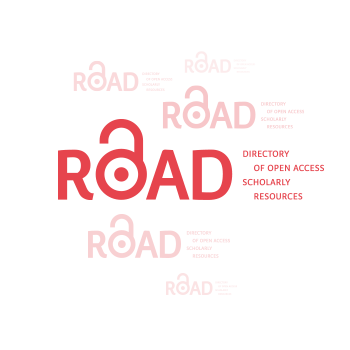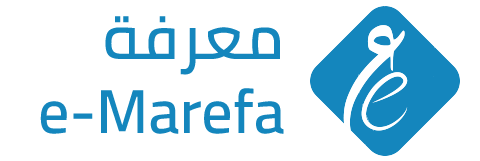Palestinian EFL Students' Attitudes Toward E-Learning and Blended Learning during the 7th of October War on Gaza
DOI:
https://doi.org/10.59994/pau.2025.1.19Keywords:
E-learning, Online Learning, Blended-Learning, Attitudes, Benefits, Challenges, Gaza war 7th of OctoberAbstract
The beginning of the Israeli military aggressive attack on Gaza after the 7th of October resulted in the disruption of education in Palestine at universities, schools, and kindergartens. Online learning can provide learners with opportunities to employ learning technologies during challenging conditions to secure somehow conducive learning environments during wartime. This study aims to investigate the perceptions of EFL students in Palestinian universities toward e-learning and blended learning during the Gaza War on October 7th. This study examines both, the benefits and the challenges of e-learning and blended learning in general, as well as the challenges of e-learning and blended learning during the Gaza War on October 7th, from the Palestinians’ points of view. The researchers used a quantitative method in this study. In order to collect data, they distributed a questionnaire among six Palestinian universities: Hebron University, Birzeit University, Bethlehem University, and Al-Quds University Palestine Ahliya University, An-Najah National University. In the questionnaire, the participants were 98 students (87 females and 11 males), and all participants have tried e-learning and blended learning experimentation during this Gaza war October 7th crisis. Overall, students’ attitudes toward e-learning and blended learning diverged as to whether to conduct e-learning or blended learning as a continuation of the semester within the 7th of October Gaza War (2023-2024). The researchers concluded that e-learning has emerged as a preferred option for many students due to its ability to address safety concerns, financial constraints, and convenience. It is especially useful during times of war and economic instability. On the other hand, some respondents prefer blended learning because of its perceived benefits in promoting fairness, adaptability, and improved learning outcomes.
Downloads
References
Assaiqeli, A., Maniam, M., Farrah, M., Morgul, E., & Ramli, K. (2023). Challenges of ELT during the new normal: A case study of Malaysia, Turkey and Palestine. International Journal of Arabic-English Studies, 23(1), 377-400.
Abdullah, W., Halim, A., & Ali, R. F. (2023). The influence of blended learning on learning outcomes. Gahwa, 2(1), 51-66.
Artyukhov, A., Simakhova, A., Artyukhova, N., Bojaruniec, M., & Wit, B. (2023). Information support of e-learning: Ukrainian challenges and cases during the war. Journal of Modern Science, 5(54), 339.
Checkland, P. B. (1999). Systems thinking, systems Practice: Includes a 30-year retrospective Chichester, UK: John Wiley & Sons Ltd.
Farrah, M. & Al-Bakry, G. (2020). Online learning for EFL students in Palestinian universities during corona pandemic: Advantages, challenges and solutions. Indonesian Journal of Learning and Instruction, 3(2), 1-14.
Farrah, M. A. A. & Jabari, S. G. (2021). Interaction in online learning environment during Covid -19: Factors behind lack of interaction and ideas for promoting it. Bulletin of Advanced English Studies, 5 (2), 47-56, doi.org.10.31559/BAES2020.5.2.3
Farrah, M., Abdalnabi, R., & Sider, A. (2022). Nature of feedback and interaction in online courses during COVID-19. Randwick International of Education and Linguistics Science Journal, 3(2), 194-209. https://doi.org/10.47175/rielsj.v3i2.472
Galynska, O., & Bilous, S. (2022). Remote learning during the war: challenges for higher education in Ukraine. International Science Journal of Education & Linguistics, 1(5), 1-6. DOI: https://doi.org/10.46299/j.isjel.20220105.01
Kononova, N., Berbyuk-Lindström, N., & Panchuk, A. (2024). Teaching and Learning amid War Crisis: Perceptions of Ukrainian Academic Staff and Students on Online Education. IBIMA Business Review, 2024, 1-13. https://doi.org/10.5171/2024.465847
Khaniukov, O. O., Smolianova, O. V., & Shchukina, O. S. (2022). Distance learning during the war in Ukraine: experience of Internal Medicine department (organisation and challenges). Art of Medicine, 3(23), 134-138.
Mukhtaramkhon, K., & Jakhongirovich, E. J. (2022). Advantages and disadvantages of blended learning in higher education. Journal of Pedagogical Inventions and Practices, 9, 14-18.
Scholars at Risk. (2023, December 18). Call to action: The crisis in Israel, Gaza, and the West Bank and its impact on academia. Scholars at Risk. https://www.scholarsatrisk.org/
Micaela, R. & Jazmin, Z. (2023). Advantages and disadvantages of blended learning in the academic performance of 8th semester PINE major students. La Libertad. UPSE, Matriz. Facultad de Ciencias de la Educación e Idiomas. 48p. (Bachelor's thesis, La Libertad: Universidad Estatal Península de Santa Elena, 2023).
Vygotsky, L. S. (1978). Mind in society: Development of higher psychological processes. Harvard University Press.
Zboun, J. & Farrah, M. (2021). Students’ perspectives of online language learning during corona pandemic: Benefits and challenges. Indonesian EFL Journal, 7(1), 1-8.
Downloads
Published
How to Cite
Issue
Section
License
Copyright (c) 2023 Journal of Palestine Ahliya University for Research and Studies

This work is licensed under a Creative Commons Attribution 4.0 International License.
مجلة جامعة فلسطين الاهلية للبحوث والدراسات تعتمد رخصة نَسب المُصنَّف 4.0 دولي (CC BY 4.0)











